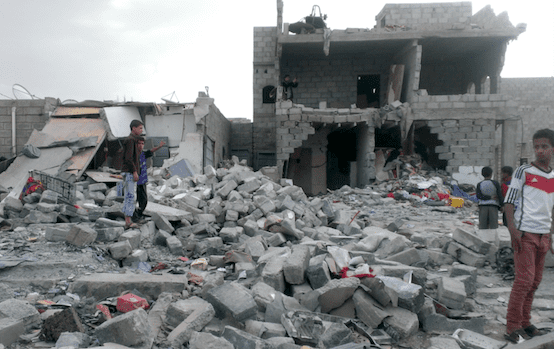The Abuse of Terrorist Designations and the War on Yemen

The Trump administration is considering yet another ill-advised terrorist designation, and this time they are thinking of applying one to the Houthis in Yemen:
The terrorist organization designation would make it illegal to provide support to the Houthis, ban members from traveling to the United States and freeze the group’s financial assets. Those actions would have a largely symbolic effect because of the rebels’ already isolated status but could make it more difficult for aid organizations to provide relief in the country.
Terrorist and state sponsor designations are always politically motivated, but the Trump administration has excelled at abusing these designations for reasons that have nothing to do with opposing terrorism. When they labeled North Korea as a state sponsor of terrorism a few years ago, this was simply another part of their “maximum pressure” campaign against that government. North Korea hasn’t been in the business of sponsoring terrorist groups or attacks for decades, but they were put back on the list because it was another way to justify more sanctions. The administration labeled the entire IRGC as a terrorist group in its biggest abuse so far, and for the first time considers part of another state’s military to be equivalent to non-state actors. Needless to say, neither of these designations has made the governments affected by them more inclined to compromise in negotiations. Applying an inaccurate designation to the Houthis would be repeating the same mistakes, but with the added consequences of interfering with humanitarian relief for the bulk of the population of Yemen that lives in Houthi-controlled territory and making a negotiated settlement even harder to reach. If there is ever going to be an end to the war in Yemen, it will require including some representatives of the Houthis as part of any future government, and labeling them as terrorists when they don’t fit the definition would make that much harder.
The Houthis are responsible for many war crimes and human rights abuses since they seized power, and they have disappeared and tortured people that have criticized their rule, but they are a thuggish quasi-government rather than a terrorist organization. There is basically no evidence that suggests they should be added to the list of foreign terrorist organizations. Because they have received some support from Iran (support that has increased as a direct result of the U.S. backed war on Yemen), the administration sees designating them as a way of striking at Iran. Much like the policy of backing the Saudi coalition, this makes the stupid and destructive mistake of trying to harm Iran by striking at Yemenis. As usual, the people to pay the price for this denunciation will be innocent civilians that will find their aid deliveries harder to come by. Aid organizations are understandably worried about the effects of the sanctions that come with such a designation, and they are right to be concerned. As we have seen in many other cases, sanctions that are meant to penalize the political leadership in another country frequently cause more hardship to ordinary people by making it difficult or impossible to do normal business there. No organization wants risk charges of material support to a terrorist group, and that might drive aid organizations out of the country following a designation. At the very least, it will be another burden for these organizations to bear at a time when Yemen’s humanitarian crisis remains the worst in the world. Yemen is already suffering from half a decade of economic war and blockade, and additional shocks from further sanctions are bound to be harmful to the civilian population.
There is also a danger that a terrorist designation could be a prelude to U.S. attacks on the group:
Jason Blazakis, a professor at the Middlebury Institute of International Studies who previously oversaw terrorist designations at the State Department, said a foreign terrorist organization designation would be seen as more damaging than other types of designations or sanctions, and could pave the way for military attacks against the Houthis, as occurred after the designation of Iran’s Revolutionary Guard.
“That could allow them to take more aggressive kinetic actions,” he said.
The U.S. should be extricating itself from its current involvement in the war on Yemen, and it certainly shouldn’t be escalating the conflict by launching direct attacks on the Houthis. Insofar as a terrorist designation makes such escalation more likely, that is another reason to reject it. The administration’s overuse and abuse of terrorist designations are part and parcel of their overuse and abuse of sanctions generally. It doesn’t concern them if the designations are accurate, they aren’t really interested in changing behavior, and they don’t care if innocent people get hurt as a result.
Comments